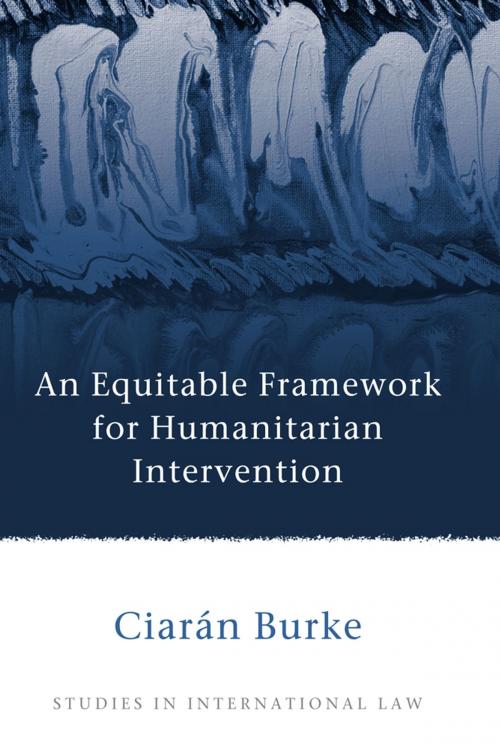An Equitable Framework for Humanitarian Intervention
Nonfiction, Reference & Language, Law, International| Author: | Ciarán Burke | ISBN: | 9781782251279 |
| Publisher: | Bloomsbury Publishing | Publication: | May 9, 2013 |
| Imprint: | Hart Publishing | Language: | English |
| Author: | Ciarán Burke |
| ISBN: | 9781782251279 |
| Publisher: | Bloomsbury Publishing |
| Publication: | May 9, 2013 |
| Imprint: | Hart Publishing |
| Language: | English |
This book aims to resolve the dilemma regarding whether armed intervention as a response to gross human rights violations is ever legally justified without Security Council authorisation. Thus far, international lawyers have been caught between giving a negative answer on the basis of the UN Charter's rules ('positivists'), and a 'turn to ethics', declaring intervention legitimate on moral grounds, while eschewing legal analysis ('moralists'). In this volume, a third solution is proposed. The idea is presented that many equitable principles may qualify as 'general principles of law recognised by civilised nations' - one of the three principal sources of international law (though a category that is often overlooked) - a conclusion based upon detailed research of both national legal systems and international law. These principles, having normative force in international law, are then used to craft an equitable framework for humanitarian intervention. It is argued that the dynamics of their operation allow them to interact with the Charter and customary law in order to fill gaps in the existing legal structure and soften the rigours of strict law in certain circumstances. It is posited that many of the moralists' arguments are justified, albeit based upon firm legal principles rather than ethical theory. The equitable framework proposed is designed to provide an answer to the question of how humanitarian intervention may be integrated into the legal realm. Certainly, this will not mean an end to controversies regarding concrete cases of humanitarian intervention. However, it will enable the framing of such controversies in legal terms, rather than as a choice between the law and morality.
'...has potential to become one of the most important books in public international law of the decade, or in a generation'.
Martin Scheinin, Professor of Public International Law, European University Institute, Florence
This book aims to resolve the dilemma regarding whether armed intervention as a response to gross human rights violations is ever legally justified without Security Council authorisation. Thus far, international lawyers have been caught between giving a negative answer on the basis of the UN Charter's rules ('positivists'), and a 'turn to ethics', declaring intervention legitimate on moral grounds, while eschewing legal analysis ('moralists'). In this volume, a third solution is proposed. The idea is presented that many equitable principles may qualify as 'general principles of law recognised by civilised nations' - one of the three principal sources of international law (though a category that is often overlooked) - a conclusion based upon detailed research of both national legal systems and international law. These principles, having normative force in international law, are then used to craft an equitable framework for humanitarian intervention. It is argued that the dynamics of their operation allow them to interact with the Charter and customary law in order to fill gaps in the existing legal structure and soften the rigours of strict law in certain circumstances. It is posited that many of the moralists' arguments are justified, albeit based upon firm legal principles rather than ethical theory. The equitable framework proposed is designed to provide an answer to the question of how humanitarian intervention may be integrated into the legal realm. Certainly, this will not mean an end to controversies regarding concrete cases of humanitarian intervention. However, it will enable the framing of such controversies in legal terms, rather than as a choice between the law and morality.
'...has potential to become one of the most important books in public international law of the decade, or in a generation'.
Martin Scheinin, Professor of Public International Law, European University Institute, Florence















